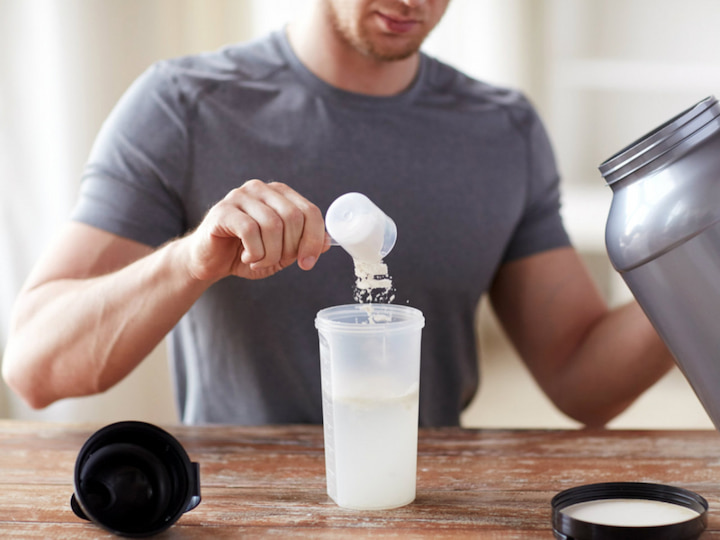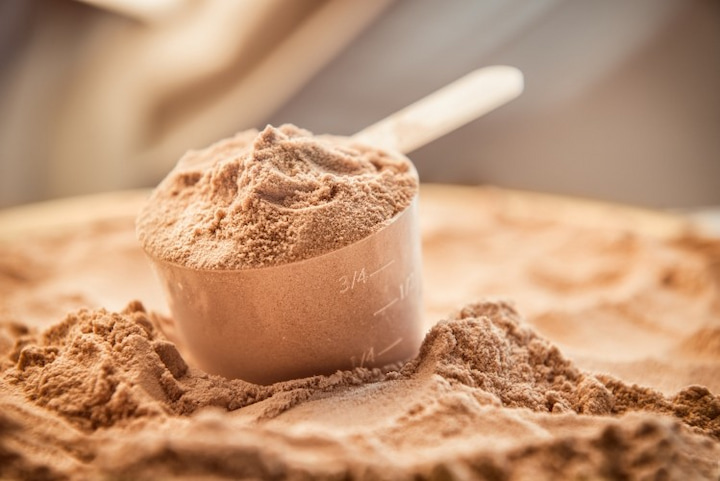Muscle Gain and Endurance: The Complete Guide to Whey Protein Powders
Protein supplements are widely consumed in the fitness industry and there is a good reason for that. They help with muscle gain, aid your recovery time and overall, help you get the most out of your workouts. Now, there are so many different types of protein supplements out there that if you’re just embarking on your fitness journey and supplementation, it can be confusing where to start.
One of the best-studied supplements you can find is effective and easily digestible whey powders that yield several health benefits, especially when it comes to muscle gain and athletic performance. Because they are an excellent source of high-quality protein, when paired with a balanced diet, these supplements can be a powerful ally in your fitness journey.

What Is Whey Protein?
Whey protein is an animal-based protein derived from milk during the cheese-making process. The milk contains two types of protein – casein and whey. The latter is separated from the liquid portion of the milk, which is then processed into a powder.
Whey is rich in essential amino acids which are incredibly important for muscle protein synthesis. Because of its high nutritional value, whey powders are incredibly popular among bodybuilders and gymgoers who want to maximise their gains.
What Is Whey Powder Good For?
Why offers numerous benefits such as muscle repair and growth, and enhanced endurance, it helps with fat loss and preservation of lean muscle mass, and improves your athletic performance, while supporting your overall immune system.
Muscle Growth and Repair
As previously mentioned, amino acids are essential compounds that facilitate muscle protein synthesis and whey is jam-packed with these vital acids. There is one particular group of essential amino acids that are very beneficial for muscle growth and repair and those are branched-chain amino acids (BCAAs) such as leucine.
Leucine is commonly found in protein supplements because of its ability to promote protein synthesis in the muscles. Regular intake of whey protein powder can improve muscle size, strength and overall muscularity.
Enhanced Strenght and Performance
Studies have shown that supplementing with whey protein powder may lead to enhanced strength and power along with better exercise performance metrics such as endurance duration and peak power output.
Whey helps replenish your glycogen stores and provides a readily available energy source for your workouts. Therefore, supplementing with whey helps you improve your endurance and performance during your workout sessions.
Aid With Fat Loss and Lean Muscle Preservation
Most fitness enthusiasts and professional athletes want something that will help them lose their body fat, but preserve lean muscle mass during their weight loss journey. Here’s where whey protein supplementation swoops in as a helpful solution.
Whey provides a high-quality source of protein which helps prevent muscle breakdown during periods of calorie restriction. This is particularly important for bodybuilders and gymgoers who want to shred and focus on primarily losing fat rather than muscle mass. If protein supplements are not your cup of tea, consider supplementing with fat burners to help you get that extra kick in burning calories.
Nutritional Support
Since whey contains all 9 essential amino acids, whey protein powder provides a complete source of protein for individuals who cannot consume enough protein through food. Along with essential amino acids, whey also contains vitamins, minerals and antioxidants, whose concentration depends on the supplement formulation.
As such, whey supplement provides comprehensive nutritional support for overall health and well-being. However, this doesn’t mean that you should rely entirely on whey as your only source of protein. You should still consume enough protein from your diet to fully experience the benefits of your protein intake.
Types of Whey Protein
There are three main types of whey protein – whey protein concentrate, isolate and hydroisolate. Each type differs in composition and processing methods, which can have slightly different effects on muscle gain.
Whey Protein Concentrate
Whey Protein Concentrate (WPC) means that the amount of protein it contains varies between 70% to 80%. WPC also contains small amounts of carbohydrates and fats. Due to the minimal processing, WPC retains more of the beneficial compounds found in milk such as immunoglobulins and lactoferin.
While WPC is a good source of essential amino acids, one thing to keep in mind is that due to its content of fat and carbohydrates, although small, might not be very suitable for those who are on a strict diet regime.

Whey Protein Isolate
Unlike WPC, whey protein isolate undergoes further processing to remove most of the fats and carbohydrates. WPI is also the highest in protein concentration which is around 90% or more. As such, whey isolate is pretty beneficial for individuals who want to increase their protein intake, without the additional calories from fats and carbohydrates. You can find isolate as a common part of post-workout supplementation due to its ability to support muscle recovery and growth.
Whey Protein Hydrolysate
WPH is a hydrolysed type of protein which means, it’s broken down into smaller peptides that are easier to digest. As such, it can be absorbed more rapidly by the body and is often used for post-recovery exercise and muscle protein synthesis. Even though it’s highly effective, WPH may be more expensive than other types of whey protein due to the additional processing it undergoes.
